
If you are reading this, the chances are that you are professionally involved in analytical chemistry or a related field. What does that mean to you? Do you have a sense of belonging to an enterprise or movement that shares a set of ideals? If so, what are its defining characteristics, who are its members and what is their motivation? Do you feel happy, lucky even, to be involved? How did you get drawn in in the first place? One way of approaching these questions would be through a poll that surveys the opinions of a large sample, to establish the zeitgeist of the field. We’ll do that later in the year, when this publication is more established. A complementary approach is to drill down into the motivation of individual analytical scientists, and that’s what I’ve done here. Seven people feature in this article, all of whom describe themselves as analytical scientists. To the extent that it’s possible, I’ve tried to select people who are ‘representative’. Two are recent graduates, one of whom has just started a PhD; another is a postdoc; two others are in their working prime, holding senior positions, one in academia and one in industry; and the final two are late in their careers, and can reflect back on three and five decades of experience. Four of them are women. Two are currently based in the United States, four in Europe and one in Asia. Find out more about them in their profiles. The seven were asked the same set of questions. The intention was to explore how they became involved in analytical science, what they enjoy and dislike about their work, how they feel that their chosen area is viewed by scientists in other fields and by the wider public, and what their sense is of the contribution of analytical science to society. Some trends emerge, as illustrated in the selection of answers here and in ‘Recognize Yourself?’ on page 35. There are as many experiences and views on these topics asthere are people in the field. Why not share your views on
We had an independent expert consider the responses and come up with a profile of a typical analytical scientist. Here’s what that person looks like:
- Wants to be a ‘force for good’, but keen to avoid the spotlight
- Is fascinated by what is real, but hidden from plain view
- Loves puzzles, has an analytical mind
- Has a tendency to look inwards, not outwards
- Prefers science hands-on, rather than theoretical
- Likes to ‘play’ with sophisticated technology
- Has a strong urge to mentor.
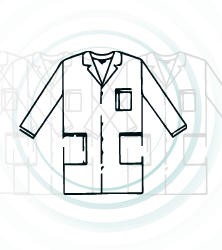
what being an analytical scientist means to you? You can join the discussion below or follow the twitter conversation @tAnaSci #whywedowhatwedo. If you’d like to submit a short video response to be posted on our website, get in touch with me at richard.gallagher@texerepublishing.com.
Age: 69 Position: Professor Emeritus, Department of Chemistry, Virginia Tech, Blacksburg, VA, USA. Background: BS in chemistry/physics, University of Arizona, MS and PhD in Analytical Chemistry, Purdue University, West Lafayette, Indiana. Following a Fulbright Scholarship spent in The Netherlands, I held positions at Esso Research and Engineering, F & M Europe and Varian Aerograph before embarking on a forty-five-year career at Virginia Tech. What makes me tick: Science is not easy, you have to work hard. If people are going off course, I tell them. Outside of science, I… still play tennis, it keeps me alive. And I really enjoy teaching short courses in interesting places. My alternative career would be… nothing else. After going to graduate school in chemistry, I was committed to a lifetime as a scientist.
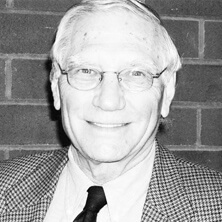
There is strong consensus that analytical science plays a central role in research. For Harold McNair, it’s all-encompassing. “If you cannot quantitate and measure, you are not really doing science,” he says. “There are three hundred gas chromatographs on this campus alone (Virginia Tech), everyone has one. No lab in the world could live without GC, LC, mass spec, NMR, AA, UV, visible and IR.” Aaron Hunter views things in the same way: “Analysis and the inferences we draw from it are the beating heart of science. From the most minute composition of our bodies and environment to the respective histories of our species and the entire planet, the ambition and sheer scope of analytical methods is inspiring.” Tuulia Hyötyläinen, commenting on her specific field, which is metabolomics, notes that “Analytical methods are essential for the early detection and diagnosis of disease, and in the development of better therapies and drugs for various diseases”.
Turning to the societal impact of the field, Frank DiSanzo observes that “Analytical scientists have made significant contributions in areas of the environment, food safety, energy and fuels research, and deployment. I think analytical chemistry surrounds most aspects of current society and the sciences.”
One personal example, from agriculture, is provided by Kendall Baker. “I am studying the degradation of phytate,” she explains, “which is an ‘anti-nutrient’ in the feedstuffs of non-ruminant animals, and a source of phosphate pollution in the environment, during the germination of barley. It has huge relevance to the agriculture industry.”
Where would we be without it? “I believe that there would be no ‘society’ without analytical science,” says Wan Raihana. “It is what keeps us safe, healthy and secure as well as helping us to understand our past, present and future.”
More often than not, a specific person played a decisive part in getting this group involved in analytical science. Another recurring way of getting hooked is the sense of play that working with complex instruments can provide; more than once, they were referred to as ‘toys’. For some, the die was cast early in life. “My father was a physics teacher, so I have been getting detailed explanations of natural phenomena since I was a kid,” Hyötyläinen explains. “I really liked, and actually still like, the experimental part. In fact, I now do basic chemical experiments with my own kids.” “I grew up in a small town in Arizona,” says McNair, “where a schoolteacher, John Marshall, taught us one year of physics and one of chemistry. That would be 1950-51. He had a master’s degree from MIT and was very tough. There were two of us in the class, myself and Joe, who were given ‘one more extra problem’. For me, that was the start of it.”
Others got the bug slightly later. “I had been interested in chemistry in high school, but did my degree in industrial engineering,” explains Isabelle François. Two interactions caused her to change course. “During my master’s thesis,
I was challenged to improve my analytical thinking by Joeri Vercammen, who also encouraged me to start a PhD. I did so under Pat Sandra, and the independence he offered let me grow as an analytical scientist: his stimulation, dynamism and knowledge were highly motivating. Sandra provided the foundation for who I am today as an analytical scientist, for which I am very grateful.”
Raihana also cites a PhD research supervisor, Tan Soo Choon. “He was encouraging when it came to me experimenting with analytical instruments. I learn best with a ‘hands on’ approach, so his willingness to give me free rein to ‘play’ with the different instruments helped me tremendously. They may look scary and they are definitely expensive, but once you get the hang of them, running the instruments becomes second nature.”
Age: 32
Position: Postdoctoral Fellow at the BRAINetwork Centre for Neurocognitive Science, Universiti Sains Malaysia, in Penang, Malaysia.
Background: BSc chemistry and PhD at Universiti Sains Malaysia (currently awaiting PhD viva voce to be scheduled). I also worked part time in a lab that screens race-horses for doping.
What makes me tick: I hate to give up on something.
Outside of science, I… am really interested in computers. I’ve taught myself programing, website design, graphic design and video editing. Currently, I am involved in a community project to empower the indigenous people of Malaysia by providing them with computer and information technology skills.
My alternative career would be… honestly, I can’t imagine doing anything else.

Instrumentation also caught the imagination of DiSanzo. “Following my undergraduate degree, I worked for a short time in an analytical chemical laboratory,” he recalls. “I was intrigued by analytical instrumental analyses, such as separation science and thermal analyses. Following that, I pursued my PhD at a university where analytical chemistry was very strong. I was impressed by the fact that graduating students had a big impact in industry and the professors were working at the frontier of the field of research.”
Age: 32
Position: Benelux Application Laboratory Manager at Waters Corporation, located near Brussels, Belgium.
Background: Master in Industrial Engineering from Hogeschool Gent. I was responsible for the chromatography team at ExxonMobil Chemical Europe, Inc. before joining Waters two years ago.
What makes me tick: A combination of flexibility, innovation, and using my skills and knowledge within a team. I am motivated by exploring new analytical technologies to find the right solutions for customers and to create business impact.
Outside of science, I… enjoy getting to know other cultures by
traveling, and spending time outdoors.
My alternative career would be… something very different, maybe language- or art-related.
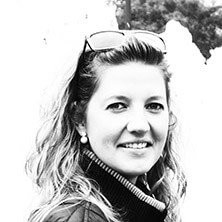
The most mentioned topic is successful problem-solving. Labwork generally is the key: it’s a shining highlight when it goes well and a source of gloom when it goes badly. “I have enjoyed opportunities to develop and deploy many of the state-of-the-art technologies for research and complex problem-solving,” says DiSanzo. “This has involved international travel to assist on key company projects as well as close interaction with highly motivated fellow scientists in the field to stimulate new ideas.”
Raihana concurs. “The best thing about being an analytical scientist is the constant challenge,” she says. “Whether it is coming up with an approach to a particularly difficult chromatographic separation, or troubleshooting why the GC-MS just won’t work, life is a series of problems that require solving.” Her best moment? “The day that I completed the lab work for my PhD project. I had reached the end of a long journey that, while full of challenges, was ultimately satisfying. I felt a great sense of achievement.”
For the two younger scientists, that’s still to come. “In my short career, I’ve most enjoyed when a protocol I have devised, planned, implemented and perfected gives significant results,” says Baker. Hunter agrees. To him, “The satisfaction of clear and unambiguous results is a definite contender for the best thing, especially when they arrive along with a resolution of a frustrating problem! However, my experience so far has mainly been troubleshooting and calibrating a home-spun effort to construct a phenol-detecting HPLC setup – I’m sure any opportunity to innovate or discover something new would pip my example to the top spot.” Anyone recalling the first time that they waded into laboratory research can all empathize with Baker and Hunter’s low points. “The thing I have found most frustrating is when results of replicate experiments are not consistent,” says Baker.
It can be very stressful; you sometimes feel like every step forward is counteracted by a huge step backwards.” For Hunter, “When you think everything’s right, know it’s been done properly elsewhere, but still aren’t getting that clear data: those are the worst moments.”
For her worst moment, Raihana chooses an event that sends a shiver of horror down the spine. “I had spent the entire day in the lab doing sample prep on more than a hundred samples,” she recalls. “My hand was cramping from all the pipetting and my back hurt. The final step was to stick the samples in the GC-MS autosampler and head off for a good night’s sleep... I dropped the entire tray, scattering tiny autosampler vials every which way. That meant spending several more hours crawling on the lab floor and then arranging them in order.” Despite his “Fifty-six years of making injections into a gas chromatograph”, McNair can pinpoint precisely his high and low points. The most exhilarating: “In 2009 at Pittcon, I was on the front page of LCGC magazine, nominated as A Pioneer in Chromatography. That was satisfying. But on the same page, my last PhD student, Kevin Shug, was named the International Emerging Leader in Chromatography. That just tickles me to death; I got more satisfaction from him winning than from all of my awards”. His worst moment came in teaching freshman chemistry. “One time, in a 1½ hour class of 450 students, the two back rows left after 15 minutes. I’d just said what would be in the exam, and one of them shouted out ‘who gives a shit’, and walked out. That lack of interest and dedication among first-year students is my low”.
Being fresh from his undergraduate years, Hunter has a suggestion for building that interest. “We did not get to grips with techniques in sufficient depth, and learning though practice is invaluable,” he says. “So, more teaching of the ‘how’ instead of just the ‘why’, ‘what’ and ‘who’, please!”
Hyötyläinen also cites the mentoring role as a most satisfying one, alongside her current research. “We have exciting results on a biomarker for early prognosis of Alzheimers disease. Without the sophisticated analytical technique used for this study, we would not have been able to find this specific metabolite, which is a strong biomarker for the disease.”
Age: 59 Position: Distinguished Research Associate at the ExxonMobil Research and Engineering Company (EMRE) in Greater Philadelphia, PA, USA. I provide broad analytical chemistry expertise and advise research programs in support of the company’s global operations. Background: Undergraduate degree in chemistry at the University of Connecticut; Masters and PhD in analytical chemistry from the University of Massachusetts-Amherst. For nearly 30 years, I have worked for EMRE. Outside of science, I… enjoy international travel, learning about ancient civilizations, new cultures, and archaeology. My alternative career would be…in another science field. As a child I enjoyed geography and later developed a strong interest in civil engineering, which eventually lead me to my current area of expertise.
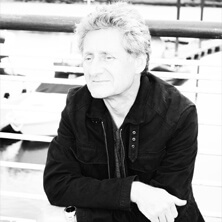
One gripe from Hyötyläinen is that “The role of the analytical chemist is not appreciated enough. People have been watching television programs like CSI, and they seem to think that results come very easily. It can be a bit challenging when this attitude comes from collaborators. Those who don’t have much of a clue about chemistry assume we have an unlimited range of methods ready and tested for all possible types of samples. We don’t. Testing takes time and money.”
Age: 22 Position: Graduate intern, University of East Anglia (UEA), Norwich, UK. Working to identify optimal growth conditions for phenol-degrading microorganisms with the aim of remediating wastewater. Background: BSc degree in Biological Sciences. About to begin an internship with Nesta, the UK's 'foundation for innovation'. What makes me tick: I want to succeed, and to contribute something new, wherever I end up! Outside of science, I… do a lot of reading – seeing through the eyes of others can be some of the most illuminating analysis we can perform. My alternative career would be… working in policy, communications or teaching. I’m something of an evangelist for scientific, analytical thinking.
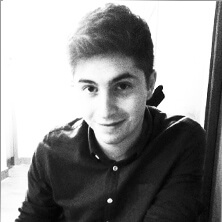
François offers two highlights, one from her PhD and one from her current role in industry. “I really enjoyed doing in-depth research and had moments of great excitement with certain novel 2D configurations which illustrated proof-of-principles,” she says of the first category. “In my current role in industry, my skills and knowledge are used in a more practical way, in a manner that matters more in ‘real’ analytical life.” Being an analytical scientist, François says, “Provides a high degree of job satisfaction. But, from the work/life balance perspective, it is sometimes hard to stop or say no. The analytical thinking process in your mind doesn’t stop at five pm. Sometimes the urge to identify a better solution, to find lower detection limits, or to meet business targets can push you that little bit too much. Of course, this depends on your personality.”
There appears to be some mild frustration among analytical scientists about how they and their field are perceived.
“Many people really do not understand that analytical chemistry is not just putting samples into some instrument and getting results,” says Hyötyläinen, finishing her thought above about fellow researchers. François believes that the wider public also misses the significance. “People often underestimate the work that is done in the lab. We may not be directly saving lives, but analytical science helps significantly in, for example, identifying medications, their effective doses, and their side effects; in recognizing the toxic substances that migrate from plastic wrapping; in water and air quality assessment, and in many other things.”
If it is true that analytical science gets a bum rap, Hunter may have the explanation. “The details get lost in the ‘big picture’ thinking that’s encroaching on the scientific community. This is clearly bad news for analytical science, which is all about the details.”
Others have a more sanguine view. “People who are familiar with research do understand the significance of what analytical scientists do, and give credit accordingly,” says Raihana. And McNair agrees. “For the most part,” he believes, “all scientists get the respect they deserve – based on their students and their publications.” He does, however, think that the term ‘analytical chemistry’ is a misnomer that may be holding back the field. “That term goes back to when they did titrations and gravimetrics. Talk about ‘instrumental methods’ and then you see the real value.”
Whatever it is called, Baker has observed a certain respect being accorded. “Researchers from across the university often come to our lab asking for advice from my supervisor … and sometimes about the use of our equipment.”
The consensus is that the role of the analytical science is neither widely understood nor a great source of interest to most people – and perhaps it should be. It is, however, a respected profession. “Friends that are into science understand my job content, and talk about research is never far away in when we get together,” says François. “However, the majority of my friends and family do not fully understand what I am doing. That’s okay. I enjoy having the different influences of their culture, personalities and other insights. And if I describe my job using a practical example, such as the ability to detect and quantify the amount of doping products that are retrieved in cyclist’s blood or urine, that is usually sufficient to get across what I do.” DiSanzo reports a similar experience. “Usually family members are closest in understanding what role we play,” he says.” My children have had significant exposure to science and interestingly we can have discussions using true scientific terminology. To non-scientific friends and neighbors, we are seen as someone with a very interesting career in a challenging field.”
Age: 42
Position: Team Manager and Principal Scientist at VTT Technical Research Centre of Finland, near Helsinki, Finland.
Background: MSc in chemistry and PhD in analytical chemistry at University of Helsinki. After that I continued at the University of Helsinki in various research positions. I moved to VTT in 2009, where I am currently leading a metabolomics laboratory.
What makes me tick: In research, motivating and challenging work, and nice coworkers. There are always problems to solve in experimental work, and I like that.
Outside of science, I… enjoy spending time with my family, particularly with my very active kids, cooking and reading.
I also enjoy painting.
My alternative career would be… in some more artistic field, perhaps a designer or an architect.
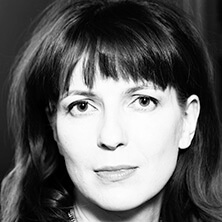
“At a cocktail party,” McNair says, “about thirty percent of people know what’s going on; the other 70% say they flunked chemistry, end of story.” “General approval, mixed with incomprehension,” is the reaction that Hunter gets too. “That’s why,” he says, “effective communication is especially important when it comes to analytical science; the details of how a given result was actually obtained often gets lost in the hyperbole about theories and implications, when in fact it’s the techniques themselves that can lead to a real paradigm shift.”
Age: 23
Position: First year PhD student at University of East Anglia (UEA), Norwich, UK.
Background: BSc in biochemistry from UEA. I then spent one year as a medical laboratory assistant before returning to study for a PhD.
What makes me tick: I thrive in an environment where I have goals and can gain a sense of personal achievement.
Outside of science, I… like to get away for weekends. I play volleyball with a
local club.
My alternative career would be… in a different analytical role, working with numbers, perhaps in the financial or insurance industries.
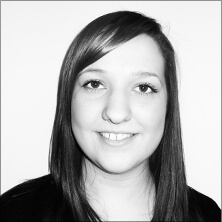
Accepting that the field could benefit from a higher profile, what stirring messages would the group propose to attract people to the field? Frank DiSanzo gets to the heart of the subject: “Analytical chemistry is a discipline focused on solving issues that puzzle much of our society. Our focus is not just simply analysis, but a combination of research and problem solving. To quote Jules-Henri Poincare: ‘somewhere, something incredible is waiting to be known’.” Aaron Hunter combines the inspirational with the practical: “Just think of the possibilities! Analytical science produces some of the most real and cutting-edge research there is, and the sheer transferability of the techniques you’ll learn will provide a diverse set of options for developing your career.” Tuulia Hyötyläinen suggests that how analytical science is done should be a selling point: “It combines a very practical way of working with a scientific viewpoint; the range of applications are wide, so you have a lot of choice in what to do. It also is multidisciplinary, so you always have an opportunity to learn something new.” Wan Raihana also promotes variety as a strong point: “It constantly offers new opportunities. There are not many areas of science that don’t depend on analytical scientists to get the answers that they need.”
Isabelle François lays out the benefits: “Next to the fact that it provides a high degree of job satisfaction, there is currently a need for good scientists across industry and in universities. Career prospects are good.” The last word goes to Harold McNair and is a demonstration of inspiration, rather than a description. “I’ve taken on in my lab three people who were working in fast food restaurants, one of them recently. I just got chatting to them: all had college degrees and I felt that in waiting tables they were wasting their lives. I followed up with long discussions, and the first two that I gave part-time jobs are both now on PhD programs at other universities. The current one, if he picks up some GC and GC-MS experience, can get a job in about six months, or go on to study elsewhere.” Now, that’s inspiring!




